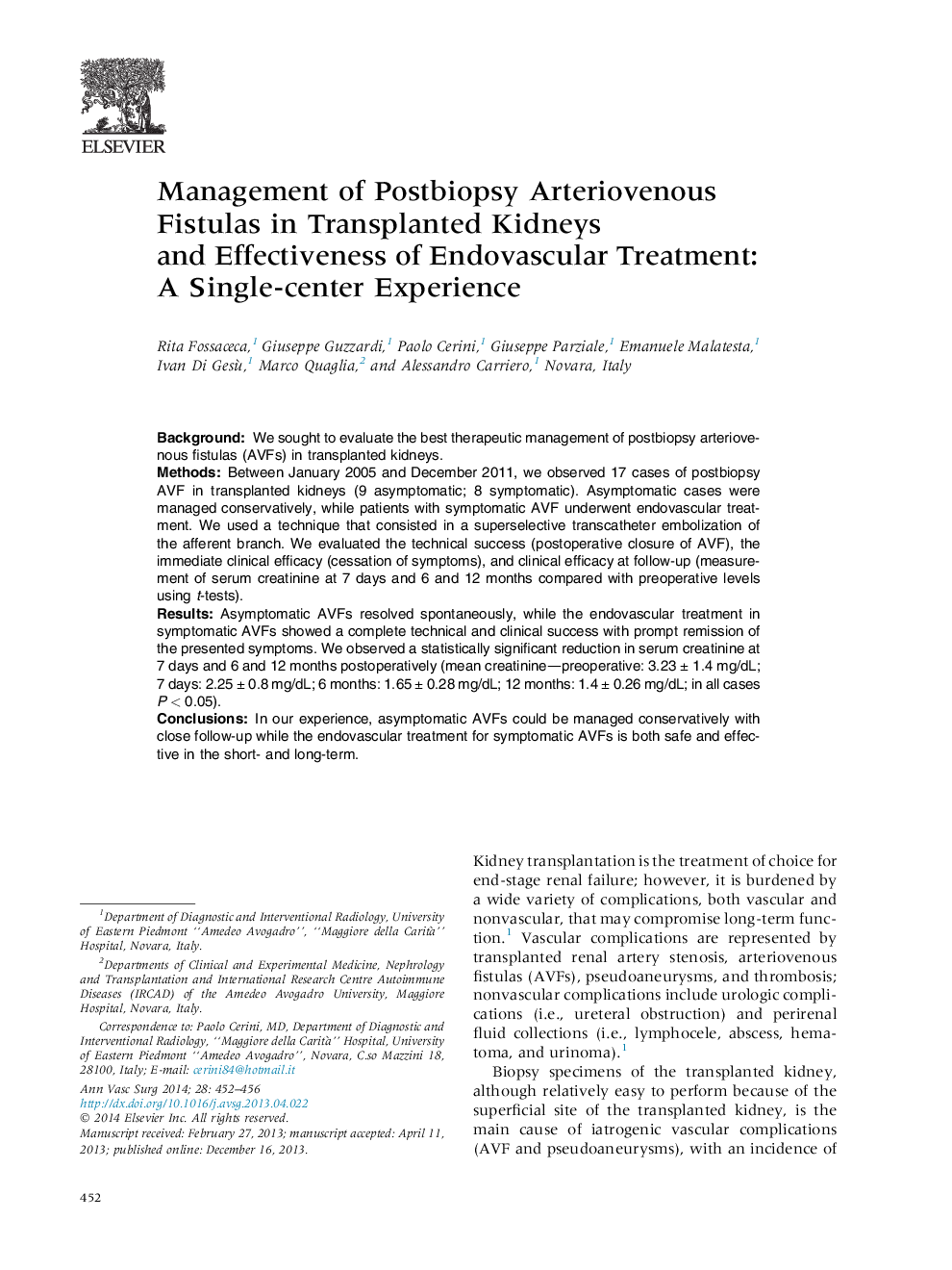| Article ID | Journal | Published Year | Pages | File Type |
|---|---|---|---|---|
| 2886342 | Annals of Vascular Surgery | 2014 | 5 Pages |
BackgroundWe sought to evaluate the best therapeutic management of postbiopsy arteriovenous fistulas (AVFs) in transplanted kidneys.MethodsBetween January 2005 and December 2011, we observed 17 cases of postbiopsy AVF in transplanted kidneys (9 asymptomatic; 8 symptomatic). Asymptomatic cases were managed conservatively, while patients with symptomatic AVF underwent endovascular treatment. We used a technique that consisted in a superselective transcatheter embolization of the afferent branch. We evaluated the technical success (postoperative closure of AVF), the immediate clinical efficacy (cessation of symptoms), and clinical efficacy at follow-up (measurement of serum creatinine at 7 days and 6 and 12 months compared with preoperative levels using t-tests).ResultsAsymptomatic AVFs resolved spontaneously, while the endovascular treatment in symptomatic AVFs showed a complete technical and clinical success with prompt remission of the presented symptoms. We observed a statistically significant reduction in serum creatinine at 7 days and 6 and 12 months postoperatively (mean creatinine—preoperative: 3.23 ± 1.4 mg/dL; 7 days: 2.25 ± 0.8 mg/dL; 6 months: 1.65 ± 0.28 mg/dL; 12 months: 1.4 ± 0.26 mg/dL; in all cases P < 0.05).ConclusionsIn our experience, asymptomatic AVFs could be managed conservatively with close follow-up while the endovascular treatment for symptomatic AVFs is both safe and effective in the short- and long-term.
